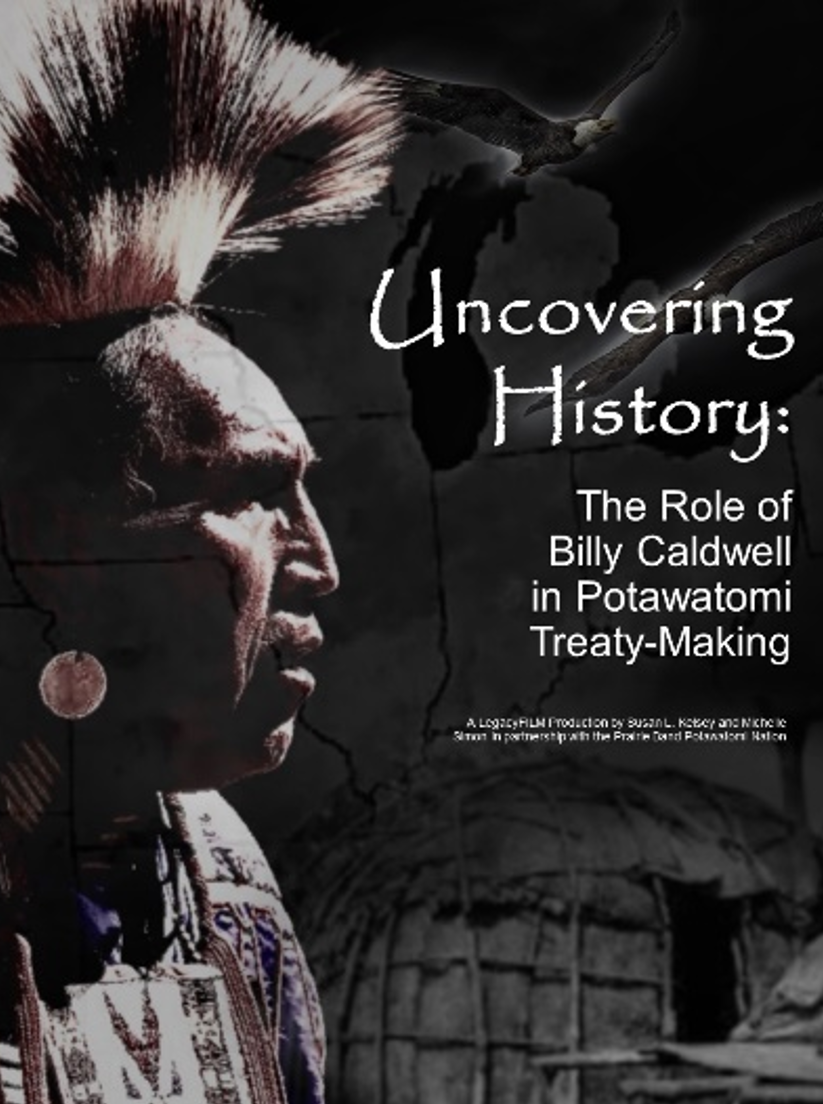Susan L. Kelsey
Your project has entered our festival. What is your project about?
Great Lakes fur trader Billy Caldwell, half Irish, half Mohawk negotiated one of the largest land treaties in America. In his quest to be accepted and find a home he risked being a traitor to his people.

What are your ambitions with your project?
The goal of the film is to activate conversation around the genocide of American Indians throughout the 1800's and continuing through today.
Tell us something about your shooting? What pleasantly surprised you?
Our team was surprised about the depth of individual and collective trauma discussed in the interviews. The team created safe spaces for long-overdue conversations about the treatment of Indigenous people in America.
Great Lakes fur trader Billy Caldwell, half Irish, half Mohawk negotiated one of the largest land treaties in America. In his quest to be accepted and find a home he risked being a traitor to his people.

What are your ambitions with your project?
The goal of the film is to activate conversation around the genocide of American Indians throughout the 1800's and continuing through today.
Tell us something about your shooting? What pleasantly surprised you?
Our team was surprised about the depth of individual and collective trauma discussed in the interviews. The team created safe spaces for long-overdue conversations about the treatment of Indigenous people in America.


For what group of spectators is your film targeted?
Our film is targeted to people interested in social justice, American Indian history and diversity.
Why should distributors buy your film?
Over the course of two years of filming interviews, our team has amassed several hours of historical information that would produce an interesting docuseries. Contemporary interviews with Native Americans provide a voice to current issues in social justice, race and equality.

How would you specify your work? What characterizes your film?
Our film is produced with contemporary interviews with the Prairie Band Potawatomi Nation Tribal Council and Elders. The historic decision to negotiate the trade of land in the Chicago area is reviewed and the viewer will make their own decision about the course of history.
Why did you decide to become a filmmaker?
As an author, I enjoy the creativity of words and documenting history. Becoming a filmmaker expanded that creativity with photography, editing and production. Both producers, Susan L. Kelsey and Michelle Simon enjoyed collaborating about the film and producing an authentic documentary with Native American voices.
Who is your role model?
Aside from my parents, I enjoy several filmmaker styles, Michael Moore, Charles Ferguson, Martin Scorsese, Ron Howard and Ava DuVernay.
Which movies are your favorites? Why?
My favorites are documentary films because I’m curious about the world, curious about people and I enjoy learning from other perspectives.
Where do you look for inspiration for your films?
I look for emotion from the interviewee. I watch for hesitation, the flick of the eyes, a breath and then lean in to understand what their truth is. I enjoy working with people to bring about the story.
Which topics interest you the most?
I am most interested in history, social justice and equity.
What do you consider your greatest achievement in your career?
To date, the completion of The Negotiator: Billy Caldwell feature film.
What do you consider most important about filming?
I believe after the story, the most important thing about filming is ethical treatment of the interviewees and the story.
Which film technique of shooting do you consider the best?
As a first-time filmmaker, I worked closely with the cinematographer to capture two angles with a consistent look throughout the film. I hired the best in the area so the lighting, sound and storage were professional.
How would you rate/What is your opinion about current filmmaking?
Personally, I don’t like violent movies, so I would say I would hope more filmmakers would be interested in social justice and equity in the storylines.
What can disappoint you in a movie?
I like a strong ending in a film. One that may surprise you, but in the end it completes the story.
Who supports you in your film career?
My family and several friends have been very supportive.

What are the reactions to your film? (opinion of spectators, film critics, friends and family)
Most people comment on the fact that they like the interviews. People like the authenticity of the subjects and the interviewees. People enjoy learning new information about the Native American tribes in the USA.
Have you already visited any of the prestigious film festivals?
Yes, I have attended several film festivals and enjoy all types of festivals.
What are your future plans in filmmaking career?
Producing this documentary was so much fun that our team has three more documentary films in production. Each film focuses on a social justice issue and serves to activate the listener to learn more about their world.
